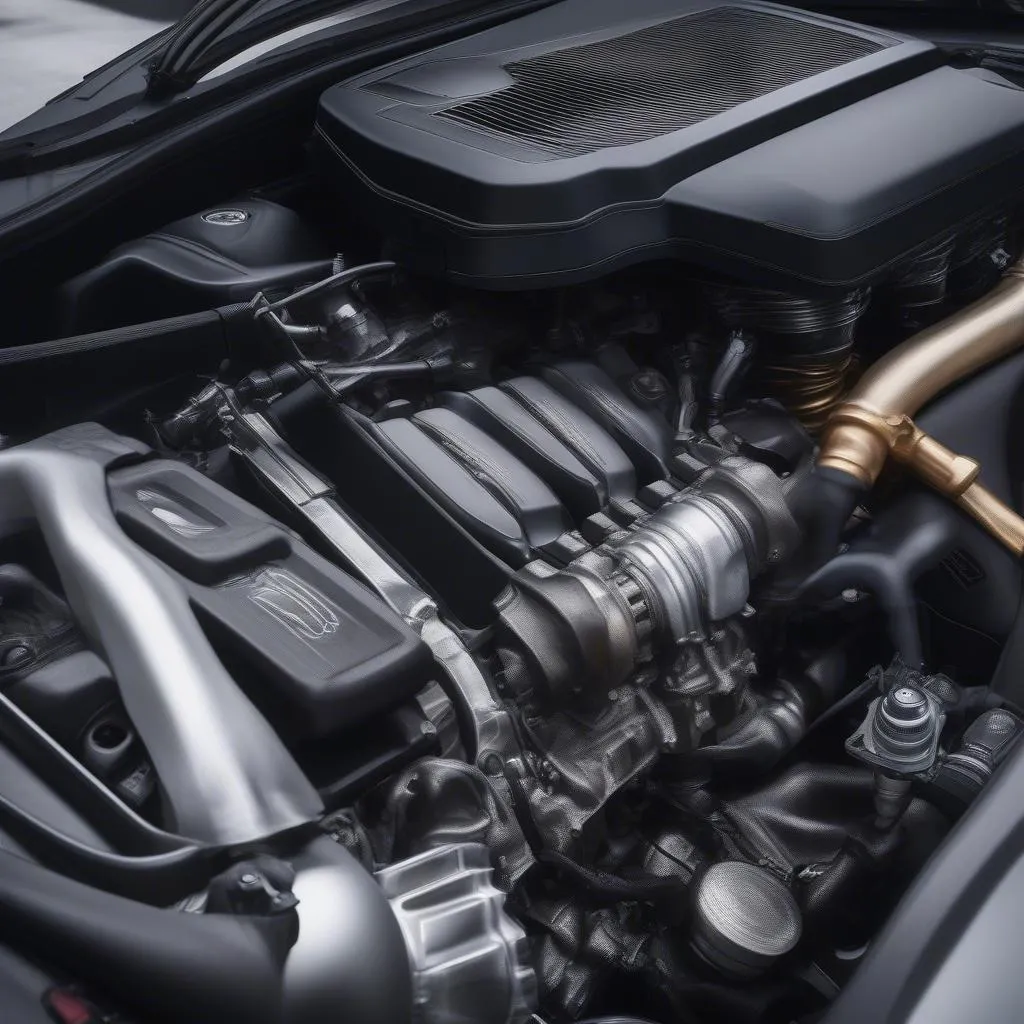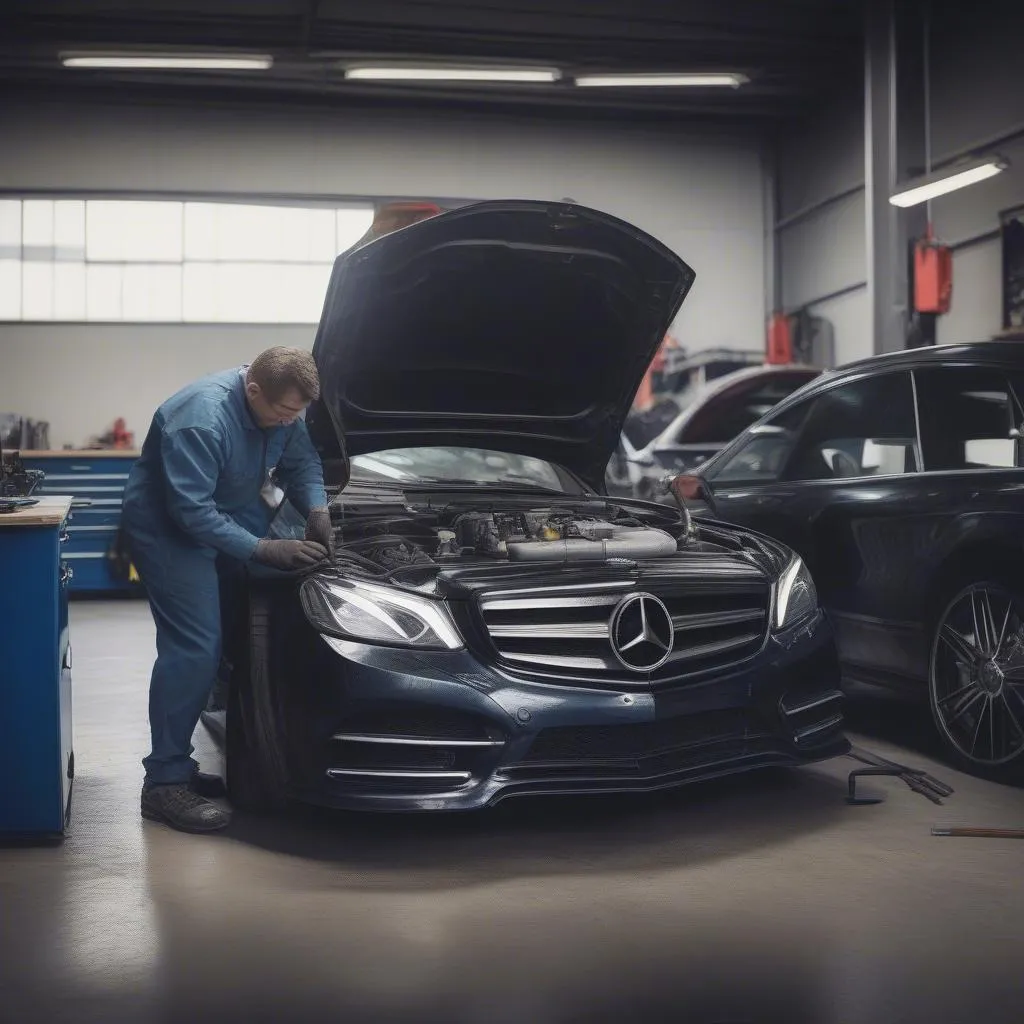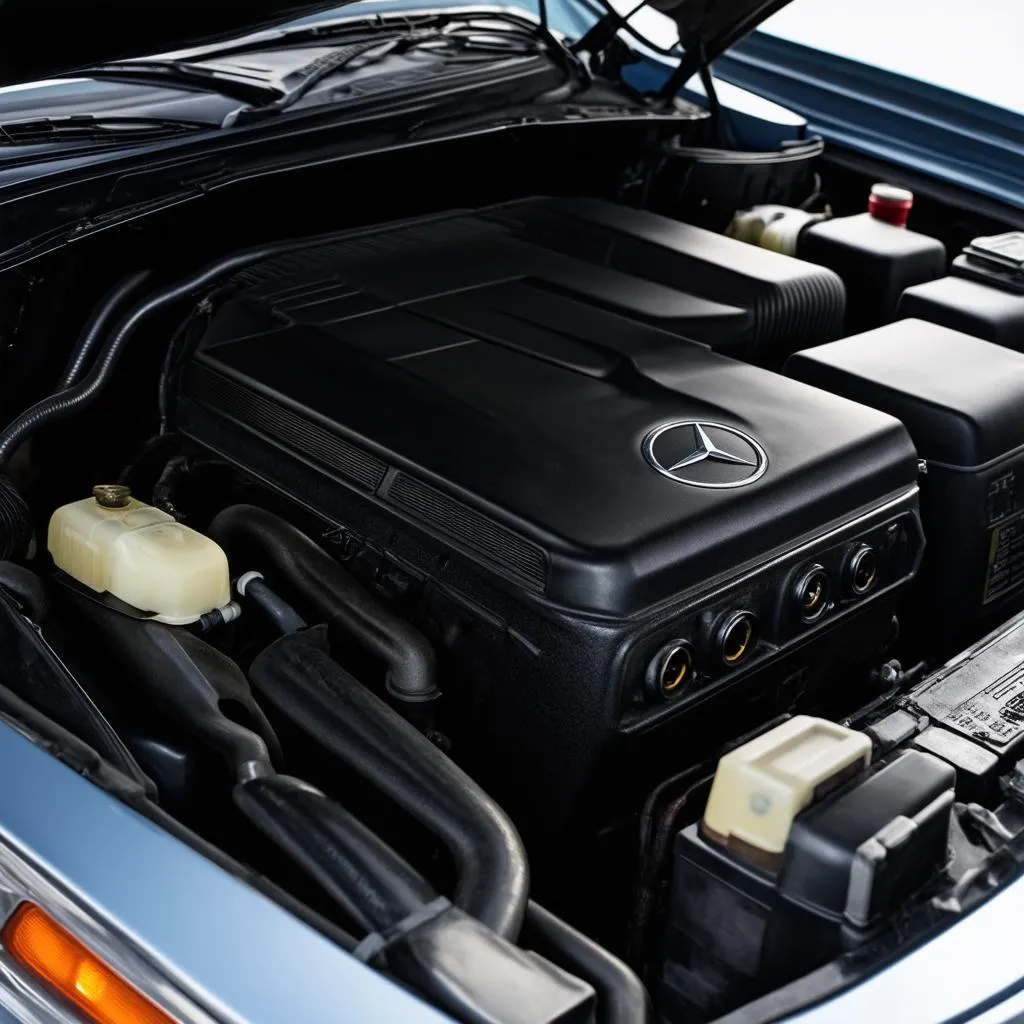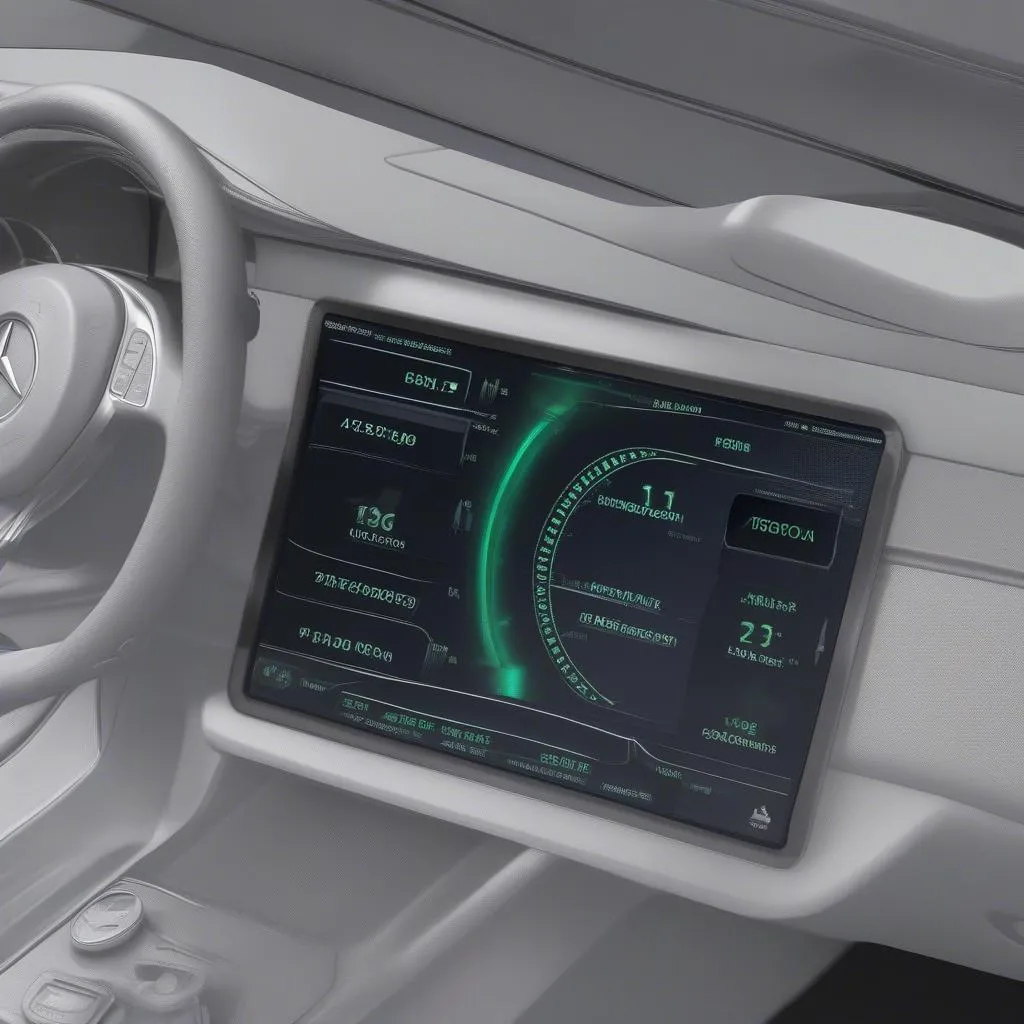Is your Mercedes sluggish on the uptake? Experiencing a noticeable delay when you hit the accelerator? You might be dealing with the dreaded “Beschl” issue. “Beschl,” short for “Beschleunigung” (German for acceleration), indicates a problem with your car’s acceleration performance. This article provides a comprehensive guide to understanding, identifying, and fixing “beschl” issues in your Mercedes.
Understanding “Beschl” Issues in Mercedes
While Mercedes-Benz vehicles are renowned for their performance and engineering, they can still experience acceleration problems. These issues can stem from various factors, ranging from simple maintenance oversights to more complex mechanical or electronic malfunctions.
Identifying “Beschl” Symptoms
Recognizing the symptoms of “Beschl” is crucial for early detection and timely repair. Here’s what to look out for:
- Hesitation or lag during acceleration: This is the most common symptom, where your car feels sluggish and slow to respond when you press the gas pedal.
- Reduced engine power: You might notice a significant decrease in your engine’s power output, particularly during acceleration.
- Unusual noises: Strange sounds, such as whining, grinding, or knocking, may accompany acceleration attempts.
- Warning lights on the dashboard: Pay attention to warning lights, especially the “Check Engine” light, which can indicate acceleration-related problems.
Essential Tools for Diagnosis and Repair
Before diving into repairs, gather these tools for a smoother troubleshooting process:
- OBD-II Scanner: This tool reads your car’s onboard computer for error codes, providing valuable insights into the issue.
- Mechanic’s Toolset: A basic set of wrenches, screwdrivers, and pliers is essential for handling mechanical components.
- Multimeter: This device helps test electrical circuits and components, useful for diagnosing sensor or wiring problems.
 Mercedes Engine
Mercedes Engine
Troubleshooting and Repair Guide
Follow these steps to diagnose and potentially fix the “Beschl” issue:
- Read OBD-II Codes: Start by connecting your OBD-II scanner and noting down any stored error codes. These codes provide a starting point for diagnosis.
- Check Air Intake System: Inspect the air filter, MAF sensor (Mass Air Flow), and throttle body for dirt, debris, or damage. Clean or replace components as needed.
- Inspect Fuel System: Ensure the fuel pump is functioning correctly and the fuel filter is clean. A clogged fuel filter restricts fuel flow and hinders acceleration.
- Examine Ignition System: Check spark plugs for wear and tear and replace them if necessary. Also, inspect ignition coils for proper function.
- Evaluate Transmission: If your Mercedes has an automatic transmission, check the transmission fluid level and condition. Low or dirty fluid can cause shifting problems and affect acceleration.
 Mechanic Working on Car
Mechanic Working on Car
FAQs about Beschl Fix Mercedes
Q: Can a faulty MAF sensor cause “Beschl” issues?
A: Absolutely! The MAF sensor measures the airflow into the engine. If it provides inaccurate readings, the engine might receive too much or too little fuel, leading to acceleration problems.
Q: What if I’ve tried these steps, and the problem persists?
A: For persistent issues, it’s best to seek professional help. A qualified Mercedes mechanic, like those at specialized workshops, can provide advanced diagnostics and repair solutions.
Q: Are there specific OBD-II scanners recommended for Mercedes vehicles?
A: While generic scanners can read basic codes, using a Mercedes-specific scanner like those from CARDIAGTECH can offer more detailed information and advanced functions for diagnostics and troubleshooting.
Conclusion
Addressing “Beschl” issues in your Mercedes requires a systematic approach, starting with understanding the symptoms and using appropriate diagnostic tools. While some repairs can be tackled with basic mechanical skills, don’t hesitate to seek professional assistance for complex problems or if you’re unsure about any procedure. Regular maintenance and timely repairs are key to enjoying the performance and driving pleasure your Mercedes-Benz offers.


